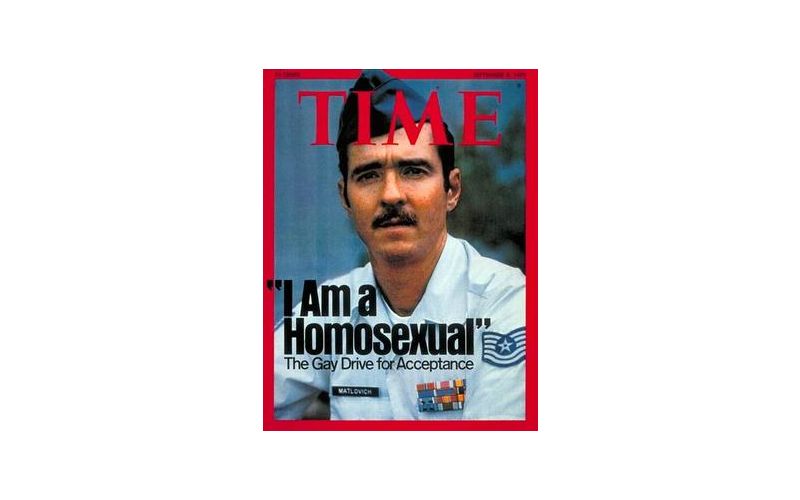100 Heroes: Leonard Matlovich
The gay man who became a military hero.

Leonard Matlovich was a Vietnam War veteran – a recipient of the Purple Heart and the Bronze Star.
Matlovich was the first gay service member to purposely out himself to the military - he did it to challenge the military's ban on gay men.
His campaign to stay in the United States Air Force after publicly discussing his sexuality made Matlovich a public figure and the gay community rallied around him. His case resulted in articles in newspapers and magazines throughout the country as well as numerous television interviews.
His photograph appeared on the cover of Time magazine in September, 1975.
Early career
Born in 1943 at Hunter Air Force Base in Savannah, Georgia, Matlovich was the only son of a career Air Force sergeant.
He spent his childhood living on military bases, primarily throughout the south of the United States.
Not long after he enlisted at 19, the United States increased military action in Vietnam. Matlovich volunteered for service in Vietnam and served three tours of duty. He was seriously wounded when he stepped on a landmine in Đà Nẵng.
Activism
In 1974, Matlovich read an interview in the Air Force Times with gay activist Frank Kameny, who had counselled several gay people in the military over the years.
Matlovich contacted Kameny, who told him he had been looking for a gay service member with a perfect record to create a test case to challenge the military’s ban on gays.
After several months of discussion and planning with Kameny and ACLU attorney David Addlestone, Matlovich hand-delivered a letter to his commanding officer.
When his commander asked, “What does this mean?” Matlovich replied, “It means Brown versus the Board of Education” – a reference to the 1954 landmark Supreme Court case outlawing racial segregation in public schools.
Discharge and lawsuit
At that time, the Air Force had a fairly ill-defined exception clause that could allow gay people to continue to serve if there were "extenuating circumstances". These circumstances might include being immature or drunk, exemplary service, or a ‘one-time’ experimentation.
During Matlovich’s administrative discharge hearing, an Air Force attorney asked him if he would sign a document pledging to “never practice homosexuality again” in exchange for being allowed to remain in the Air Force. Matlovich refused.
Despite his exemplary military record, tours of duty in Vietnam, and high performance evaluations, the panel ruled Matlovich unfit for service, and he was discharged from the Air Force in October 1975.
Matlovich sued for reinstatement, but the legal process was a long one, with the case moving back and forth between United States District and Circuit Courts.
In 1980, a District Court judge ordered that Matlovich be reinstated into the Air Force. This led to a negotiated settlement between the Air Force and Matlovich, in which Matlovich agreed to leave the Air Force.
Later life
In 1986, Matlovich was diagnosed with HIV. He became a champion for HIV/AIDS research. He announced on Good Morning America in 1987 that he had contracted HIV, and was arrested with other demonstrators in front of the White House that June protesting the inadequate response to HIV/AIDS by the administration of President Ronald Reagan.
Matlovich died in 1988. He was 44.
